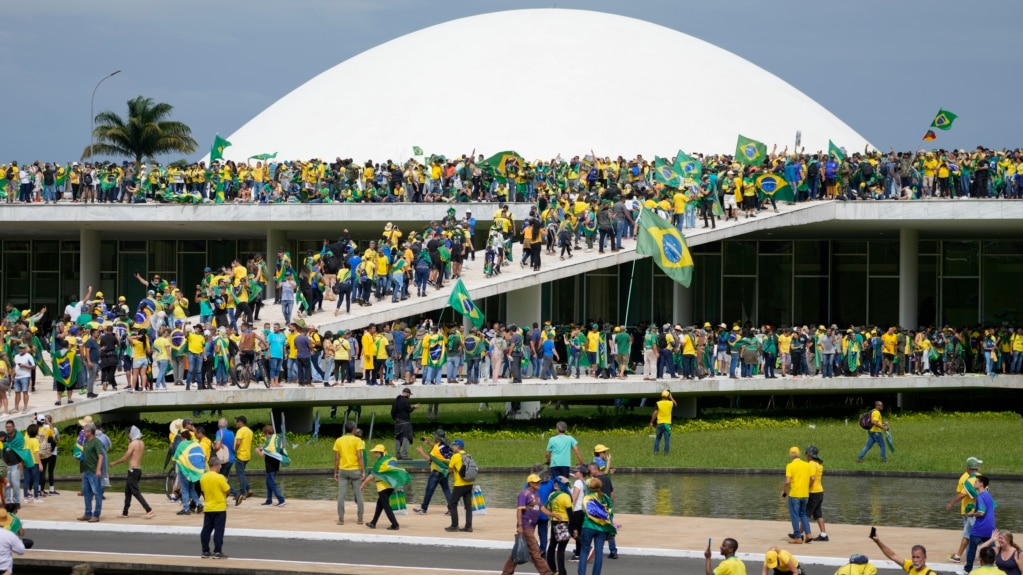Brazil’s President Luiz Inacio Lula da Silva promised to bring those responsible for the violence to justice after the attack on Congress, the Supreme Court, and the presidential home in Brasília.
On Sunday, thousands of supporters of former President Jair Bolsonaro broke windows, threw furniture, destroyed artwork, stole objects, and flooded offices during a three-hour riot in the capital area of Brasília.
Wearing green and yellow, the colors of the national flag, they were seeking to bring Bolsonaro back to power. Observers said the actions were like the January 6 attack on the U.S. Capitol building in 2021.
The Associated Press reported that one video showed a group of protesters pushing through a police line with limited struggle. Only a few officers deployed pepper spray, a chemical often used to control crowds. Another showed officers standing by as protesters stormed Congress, including one recording images on his phone.
"These vandals…did what has never been done in the history of this country," said Lula who defeated Bolsonaro in a closely fought election. "All these people who did this will be found and they will be punished."
Lula blamed Bolsonaro for inciting his supporters with unproven claims about possible election cheating. He said, "Everybody knows there are various speeches of the ex-president encouraging this."
On Sunday, Bolsonaro was silent for nearly six hours about the events in Brasília before rejecting Lula’s accusation. He denied inciting his supporters. He said the rioters had "crossed the line".
Claims of cheating
Bolsonaro, who is now in the U.S. state of Florida, has yet to admit that he lost the election. He claimed that Brazil's electronic voting system was easy to misuse without offering any evidence. And his party’s request to set aside ballots was dismissed in court.
Bolsonaro’s supporters still refused to accept the results.
Paulo Calmon is a political science professor at the University of Brasília. He called Bolsonaro the “Trump of Latin America” and compared his supporters’ actions on January 8 in Brasília to the attack on the U.S. Capitol on January 6, 2021.
Mario Sérgio Lima is a political analyst at Medley Advisors, a policy research group. He said, “These groups were created by him, by the radicalism he imposed on politics. There is no way to undo that…”
Unlike the 2021 attack in the U.S., few Brazilian officials would have been working in the top government buildings on a Sunday. But the president's allies raised questions about how public security forces in Brasília were so unprepared. They appeared to be easily overtaken by rioters who had been planning on social media for days to gather for weekend demonstrations.
Thiago de Aragão is director of strategy at Brasília-based Arko Advice, a research company. He said, “Everyone knew they (the protesters) were coming to Brasília. The expectation was that the federal district’s government was going to mount a response to protect the capital. They didn’t do any of that.”
Justice Minister Flávio Dino said the actions were the same as terrorism. He said officials were looking into who paid for the buses that transported protesters to the capital. “They will not succeed in destroying Brazilian democracy,” he said.
Brazilian officials noted that the buildings would be searched for evidence including fingerprints and images.
On Monday, the justice ministry said more than 1,200 people had been detained.
Following the attack, many world leaders from Europe and Latin America voiced their support for Brazil’s democratic government. U.S. President Joe Biden called the events an "assault on democracy and on the peaceful transfer of power.”
I’m Mario Ritter Jr.
Hai Do adapted this report for VOA Learning English from Associated Press and Reuters sources.

